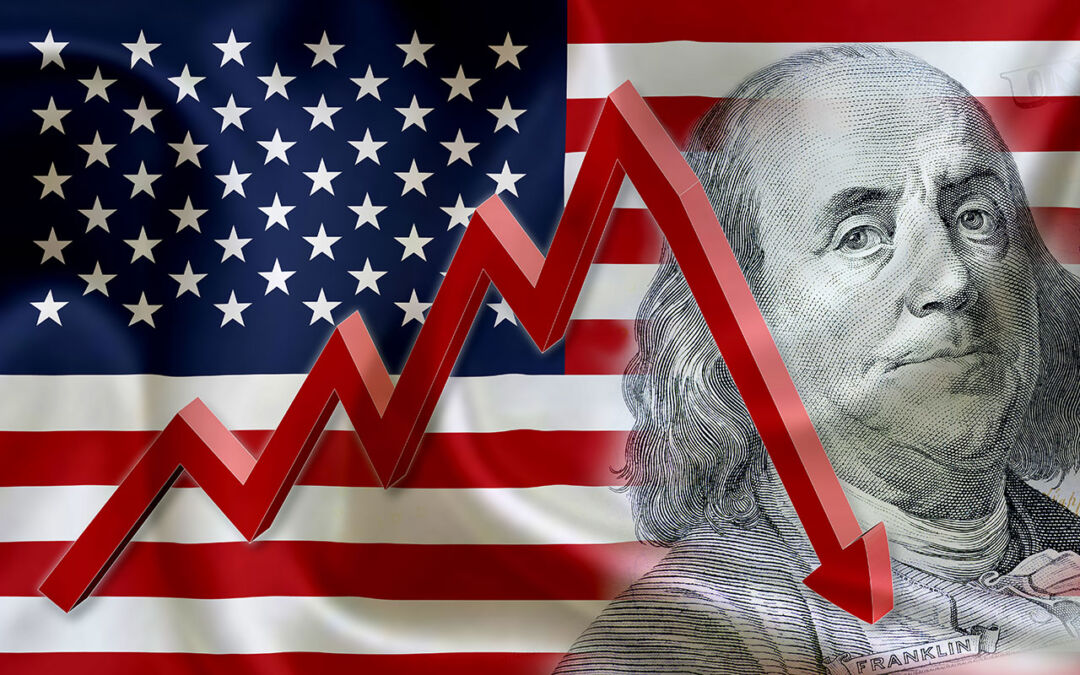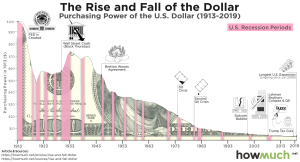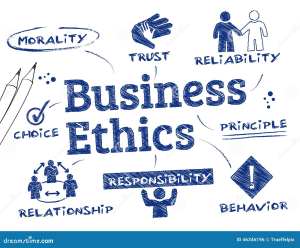The term “U.S. economy recession” has recently been at the forefront of discussions among economists and investors alike, as various indicators signal a troubling downturn. Heightened risks stemming from trade war effects, particularly following tariff escalations with key trading partners, could significantly impact American markets. Furthermore, the stock market impact has been profound, prompting fears that a recession may be just around the corner. As uncertainty looms, the Federal Reserve’s interest rates remain a crucial topic, with many speculating whether cuts are necessary to stimulate growth. Concurrently, a declining consumer sentiment index reflects widespread apprehension about the economic landscape, raising serious questions about the trajectory of the U.S. economy in the coming months.
As discussions about economic downturns heat up, phrases like “economic contraction” and “financial slowdown” come into play, reflecting the gravity of the situation facing the nation. Analysts are increasingly concerned about how the prolonged trade conflict could affect domestic markets and lead to a significant contraction in economic growth. The resultant decline in the stock markets echoes the fears that many have about a looming recession, influencing both investor and consumer confidence. Furthermore, with the Federal Reserve grappling with critical decisions regarding interest rates, the potential for further economic instability becomes a pressing issue. As the consumer sentiment index continues to reflect a dip in optimism, the implications for the broader economy could be severe, warranting close monitoring and strategic interventions.
Impact of the Trade War on the U.S. Economy
The ongoing trade war has cast a long shadow over the U.S. economy, fueling concerns about its potential to escalate into a recession. As tariffs imposed by countries like China, Canada, and Mexico bite into American goods, economists warn that prolonged trade tensions could severely disrupt markets and consumer confidence. The volatility in global trade not only affects exporters but has a ripple effect, impacting domestic manufacturing and job markets. Businesses are caught in a web of uncertainty, re-evaluating their strategies and delaying investments, which collectively dampens economic growth.
The repercussions of such a trade war can be observed in various sectors, especially as consumer sentiment declines. The University of Michigan’s consumer sentiment index reflecting a downward trend signals that Americans are becoming cautious about spending. Economic downturns are often triggered by reduced consumer spending, which can lead to layoffs and further exacerbate economic challenges. Additionally, as companies face rising costs due to tariffs, they may pass these expenses onto consumers, resulting in higher prices and reduced consumption.
Risks of U.S. Economy Recession
Concerns about a looming recession are growing, with several indicators pointing towards potential economic downturns. The combination of trade war effects, a volatile stock market, and the potential for drastic government spending cuts creates a precarious situation for the U.S. economy. Analysts suggest that these factors, compounded by a decline in consumer confidence, could lead to a slowdown in economic activity that might tip the scale toward recession. In this frail economic environment, investors and consumers alike are becoming increasingly risk-averse, further stifling growth.
The Federal Reserve is in a challenging position as it navigates interest rates amidst these economic clouds. While they aim to stimulate growth through potential rate cuts, the overarching threat of inflation hoses down optimism. Their decisions weigh heavily on the perceptions of risk and economic stability, which are already at lows not seen since last year. If American markets continue to stabilize in a downward trend, with consumer indices dipping, a recession within the next year seems increasingly plausible.
Effect of Stock Market on Economic Stability
The stock market plays a vital role in shaping the overall health of the U.S. economy, acting both as a barometer and a driver of economic confidence among consumers and businesses. A downturn in the stock market can have a cascading effect, leading to a decrease in household wealth and investment, ultimately causing consumer spending to stall. Such instability can erode the much-needed confidence that businesses require to make long-term investments, which are essential for growth and innovation.
When markets plummet, investors often pull back, leading to a slowdown in economic activities, including employment and spending. The psychological impact of a declining stock market can trigger a lack of faith in economic recovery, leading individuals to adopt more conservative financial behaviors. This cyclical nature of investor sentiment has severe implications for overall economic performance, further entrenching fears of an impending recession as exchange fluctuations continue to destabilize market confidence.
Federal Reserve’s Interest Rates Dilemma
The Federal Reserve currently faces a daunting challenge regarding adjustments to interest rates. On one side, maintaining low rates could support economic growth by encouraging borrowing and spending, particularly in an environment where fears of recession loom large. However, the dilemma arises as higher inflation rates threaten to destabilize an already fragile economy. The Fed must strike a balance, navigating these contradictory pressures while considering the broader implications on the consumer sentiment index and overall market confidence.
Should the Fed choose to lower interest rates to spur growth, it could mitigate immediate recession fears but potentially stoke inflation, creating a precarious situation where they may have to pivot later. Conversely, maintaining current rates might uphold inflation control but further dampen business investments and consumer spending. This balancing act underscores the complexity of the Federal Reserve’s positions and the significant role it plays in either shielding the economy from recessive impacts or inadvertently inflating them.
Consumer Sentiment and Economic Forecast
The latest shifts in consumer sentiment index suggest that American households are feeling the effects of economic uncertainty, which can significantly impact future economic activity. When consumers feel less secure about their financial situation, they tend to reduce spending, directly influencing economic growth. Reports indicating a downward trajectory in consumer sentiment often correlate with stagnating business investments and weakened market performance.
As consumers pull back on spending due to fears of a recession, it creates a feedback loop that could exacerbate economic challenges, making recovery more difficult. Moreover, confidence plays a critical role in the U.S. economy, and when indexes show decline, it can lead to heightened perceptions of risk across various sectors. Recognizing these trends is essential for policymakers as they work to stabilize the economic landscape.
Government Spending Cuts and Economic Repercussions
Potential cuts in government spending represent a critical concern for the economy, especially as the U.S. moves through a politically charged environment. Government expenditure significantly influences both the macroeconomic landscape and individual sectors. Discussions on implementing austerity measures or fiscal constraints may alleviate certain debt burdens, but it can also lead to immediate economic distress, particularly for low-income households that rely on government support.
In scenarios where government spending is curtailed, the repercussions can ripple throughout the economy, leading to job losses and decreased public sector investment. Such cuts can negatively impact sectors like health care and education, which are already facing hardships. As markets react to these potential restrictions, consumer fears are likely to grow, compounding economic challenges and increasing the likelihood of entering a recession.
The Broader Implications of Economic Instability
The implications of economic instability stretch far beyond immediate market reactions. They affect lending practices, consumer behaviors, and overall investor sentiment in profound ways. When uncertainty prevails, businesses tend to scale back on hiring and capital spending, leading to an increase in job insecurity and reduced income for many households. Such fluctuations can lead to a decline in demand for goods and services, which could further reinforce negative economic trends.
In an environment where trade wars and fluctuating fiscal policies remain uncertain, economic stakeholders must adapt to changing conditions. Investors may seek safer assets, while consumers may tighten their spending, exacerbating issues tied to a recession. As these trends unfold, addressing the broader economic implications — encompassing both consumer behavior and market dynamics — becomes essential for fostering a climate conducive to recovery.
Navigating a Volatile Economic Climate
As the economy grapples with multiple challenges, navigating a volatile climate requires astute strategies from both policymakers and businesses. The trade war presents unique difficulties that will need to be addressed through coherent, forward-looking economic policies. Encouraging transparency and consistent communication from the government can help to mitigate fears and uncertainties surrounding current economic conditions, fostering an environment conducive to growth.
Businesses must also exhibit resilience and adaptability, finding ways to manage uncertainties while maintaining operational stability. This includes reconsidering supply chain approaches, optimizing costs, and finding innovative avenues to stay competitive. As the Federal Reserve monitors economic indicators closely, a proactive approach to managing volatility can help build consumer confidence and anchor the U.S. economy against recessionary pressures.
Future Outlook for the U.S. Economy
The long-term outlook for the U.S. economy hinges on how effectively stakeholders adapt to and manage the current economic challenges. With signals of tax policy changes, global supply chain adjustments due to the trade wars, and fluctuating consumer sentiment, the landscape appears complex and uncertain. However, with strategic investments in innovation and reform, particularly in sectors impacted by tariffs, there is potential for revitalization and renewed economic growth.
Ultimately, the trajectory of the U.S. economy will depend on a collective effort — from government action to consumer confidence and business resilience. Crafting actionable policies aimed at stabilizing markets, restoring consumer faith, and promoting balanced growth will be paramount in avoiding the pitfalls of recession. A concerted approach that addresses root causes while nurturing progressive growth could turn the tide for the U.S. economy.
Frequently Asked Questions
What are the signs pointing to a potential U.S. economy recession?
Indicators of a potential U.S. economy recession include a declining consumer sentiment index, recent stock market crashes, and increasing uncertainties due to ongoing trade wars. These factors contribute to negative economic forecasts and increased risk perception among investors.
How does the trade war affect the U.S. economy and its risk of recession?
The U.S. economy faces heightened recession risks due to the trade war, which can lead to reduced consumer and business confidence, increased costs for goods, and potential retaliation from trading partners. These factors combined can slow economic growth and lead to recession.
What impact do Federal Reserve interest rates have on the U.S. economy during a recession?
Federal Reserve interest rates play a crucial role in the U.S. economy during a recession. Lowering rates can stimulate borrowing and spending, potentially mitigating the recession’s impact. However, maintaining higher rates may help control inflation, leading to a complex balancing act for the Fed.
How has the consumer sentiment index signaled a downturn in the U.S. economy?
The consumer sentiment index reflects how optimistic or pessimistic consumers feel about the economy. A drop in this index indicates declining consumer confidence, which can reduce spending and investment, thereby heightening the risk of a U.S. economy recession.
What could be the long-term effects of trade wars on the U.S. economy?
Long-term effects of trade wars on the U.S. economy may include sustained lower economic growth, higher prices for consumers due to tariffs, and potential job losses in impacted industries. These consequences could contribute to a prolonged recession if not addressed effectively.
In what ways can a stock market impact the likelihood of a U.S. economy recession?
A significant stock market decline can undermine investor confidence and lead to decreased spending and investment. This financial instability can contribute to a slowdown in economic activity, increasing the likelihood of a U.S. economy recession.
How does the Federal Reserve balance interest rate policies during economic uncertainty?
During economic uncertainty, the Federal Reserve must weigh the need to lower interest rates to support growth against the risk of inflation. This careful balancing act is critical in steering the U.S. economy away from recession while managing inflationary pressures.
What role do government spending cuts play in the risk of a U.S. economy recession?
Government spending cuts can exacerbate economic slowdowns by reducing overall demand in the economy. This contraction can lead to job losses and lower consumer spending, increasing the risk of a recession in the U.S. economy.
| Key Point | Details |
|---|---|
| Trade War Impact | Heavy losses in U.S. markets due to retaliatory tariffs from China, Mexico, and Canada, raising concerns of a recession. |
| Consumer Sentiment Decline | University of Michigan’s consumer sentiment index has dropped to its lowest level since November 2022, indicating reduced economic confidence. |
| Federal Reserve Response | The Fed may consider interest rate cuts amidst rising economic uncertainty and falling consumer confidence. |
| Risks of Recession | Multiple factors suggest an increased likelihood of recession within a year, including trade wars, stock market volatility, and increased risk perception. |
| Long-term Economic Outlook | Greater uncertainty and instability could lead to lower employment and income, potentially driving the economy into a recession. |
Summary
The U.S. economy recession is becoming a pressing concern as recent market behaviors and consumer sentiment indicators reflect increased uncertainty. The ongoing trade war, marked by retaliatory tariffs, coupled with declining consumer confidence and potential cuts to government spending, signal that recovery efforts may take considerable time. Economists warn that without strategic measures, the likelihood of falling into a recession grows, highlighting the need for carefully considered economic policies to navigate these turbulent times.




